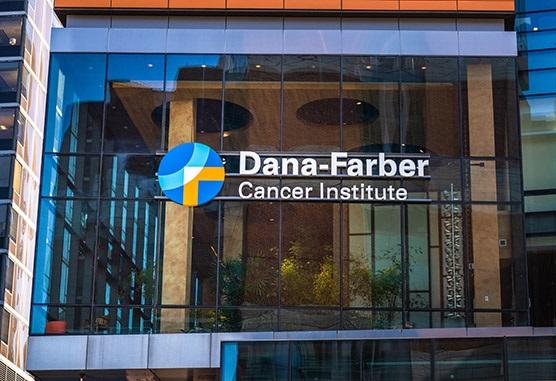Dana-Farber Cancer Institute receives $11M to intercept and cure deadly cancers
Dana-Farber Cancer Institute announced today it was awarded more than $11 million in grants to intercept cancer at the earliest stages and find cures to several of the deadliest cancers including pancreatic and ovarian cancers, and glioblastoma (GBM) — diseases with poor prognoses in which progress has been slow.
This work is funded by Break Through Cancer and is a part of $50 million in grants being made to teams across five cancer research centers: Dana-Farber Cancer Institute, Sidney Kimmel Comprehensive Cancer Center at Johns Hopkins, Memorial Sloan Kettering Cancer Center, Koch Institute for Integrative Cancer Research at MIT, and The University of Texas MD Anderson Cancer Center. This new model for collaboration enables researchers to boldly tackle some of the biggest challenges in cancer. Break Through Cancer’s innovative approach will help overcome conventional barriers to multi-institution teamwork by using streamlined systems and advanced analytics for data sharing in real time.
“Break Through Cancer has created a collaborative research model to accelerate progress in some of the most challenging types of cancer,” said Laurie H. Glimcher, MD, president and CEO of Dana-Farber Cancer Institute, and a member of Break Through Cancer’s Board of Directors. “This unique initiative will allow many of the world’s leading cancer scientists and clinicians to work together seamlessly to drive new discoveries, advance promising new therapies and ultimately deliver improved outcomes for patients.”
All Break Through Cancer-funded projects will employ a model that enables researchers and physicians from each institution to work collaboratively in real time. Additionally, new technology and systems will make data sharing frictionless. Reducing the day-to-day barriers to cross-institutional collaboration such as contract negotiations, data sharing, intellectual property, and rights to authorship will pave the way for faster discoveries.
“Accelerating the pace of discovery requires bringing basic, translational, and clinical investigators together in 'one room,' and Break Through Cancer’s model allows us to do just that,” said Alan D’Andrea, MD Director of Susan F. Smith Center for Women's Cancers and Director of the Center for DNA Damage and Repair at Dana-Farber. “Working collaboratively, we will be tackling several of the most challenging, complex, and lethal cancers and I believe that this work will be transformational to cancer research as a whole.”
Projects have been funded based on their unique cohort of researchers and potentially transformational science. They include:
- Intercepting Ovarian Cancer
- Targeting Minimal Residual Disease in Ovarian Cancer
- Conquering KRAS in Pancreatic Cancer (in partnership with the Lustgarten Foundation)
- Revolutionizing GBM Drug Development Through Serial Biopsies
Media Contacts
If you are a journalist and have a question about this story, please call 6176324090 and ask to speak to a member of the media team, or email media@dfci.harvard.edu.
The Media Team cannot respond to patient inquiries. For more information, please see Contact Us.
